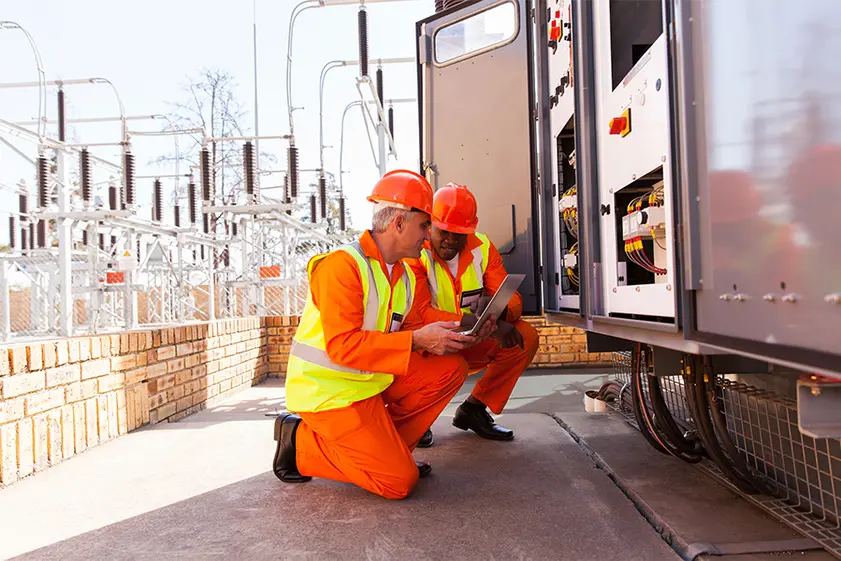PHOTO
- 81% have respect for skilled tradespeople, but would not pursue a trade career themselves
- 27% who do not currently work in a skilled trade say that they were dissuaded from pursuing a skilled trade because they do not see career growth
Dubai, United Arab Emirates –The UAE recognizes that skilled trade provides value. Recent findings from 3M’s 2022 State of Science Index survey stated that while 81% respect skilled workers, they would not pursue a trade career themselves. The survey which explores global attitudes toward science is now in its fifth year.
An outmoded perception of trades
While 91% of the respondents in the UAE believe that the workforce needs more skilled workers, such as plumbers, electricians, and carpenters, there is a lack of understanding when it comes to the opportunities on offer for those that take up a skilled trade. Addressing this understanding is critical with the ongoing skills shortage hampering employers across the UAE.
It is not as clear cut as there being less economic incentive – 82% of respondents in the UAE believe they would earn the same in a trade as in a career requiring a university degree, although this is significantly above the 71% global average. The reservation to take up a trade seems to correlate to a widespread misunderstanding of the progression of a trade career, and how the digital skills required in other industries come into play.
The STEM/Digital divide
92% believe that digital skills will help them grow in their career. It is clear that technology is a core component of the skilled trade sector. Tradespeople are required to embrace digital solutions for monitoring, implementing and performing remote maintenance on a daily basis. With the growing need for skilled workers in the UAE, the government has launched several economic initiatives to boost the country’s competitiveness including investing in technology.
With the UN Framework Convention on Climate Change’s 27th Conference of the Parties (COP 27) approaching, there is an increasing need for corporate entities to shift gears on their ESG strategy and prioritize the well-being of employees and the community.
‘The future generation of workers are concerned about climate change and are keen to foster a culture of inclusivity, diversity, and equality while respecting the planet. To attract them to skilled trades careers, we need to invest more in initiatives that foster sustainable communities, help local economies, and promote science-based environmental education.’ said Laszlo Svinger, Vice-President and Managing Director, MEA at 3M.
According to a report by PwC Middle East, three critical areas need to be addressed to unlock the potential of ESG in the region: strategic alignment, readiness to change and adapt, and the need for greater government direction and more extensive collaboration with the private sector.
He added, “We create a more positive world through science and inspire people to join us by supporting STEM education and investing in the education of future talent through a variety of programs. They include the Knowledge and Human Development Authority (KHDA)’s Dubai Saturday Clubs, where we hosted our Science at Home Program for more than 20 children from different schools across Dubai.”
Creating Opportunities
To address the need for more skilled tradespeople in society, 3M has committed to creating 5 million unique STEM and skilled trade roles globally, through its Skilled Trades partnerships. This also includes ‘reverse mentoring’, which sees Gen Z workers help to upskill older employees on digital competencies. To continue growing the respect and attraction of skilled trades jobs, training schemes must put STEM at the heart of this sector
-Ends-
About the State of Science Index
The 3M State of Science Index is an annual study conducted for 3M by a global research firm. It surveys the general populations of 17 countries. Now in its fifth year, the survey tracks the public image of science revealing trend lines over time as to how much people trust, respect and value science and the role it plays in their lives. For more information about the 2022 State of Science Index results, please visit 3M.com/ScienceIndex
About 3M
At 3M (NYSE: MMM), we apply science in collaborative ways to improve lives daily as our employees connect with customers all around the world. Learn more about 3M's creative solutions to global challenges at www.3M.com or on Twitter @3M or @3MNews.
State of Science Survey Methodology
The 3M State of Science Index presents original, independent, and nationally representative (based on census demographics) research, conducted by a global research firm through a combination of online and offline interviews. The 2022 survey was conducted Sept. 27– Dec. 17, 2021, in 17 countries among 1,000 general population adults (18+) in each of the following countries: Australia, Brazil, Canada, Colombia, China, France, Germany, India, Italy, Japan, Mexico, Poland, Singapore, South Korea, UAE, UK and the U.S.
The European results are based the respondents from: France; UK; Italy; Germany; and Poland.
At the 95% confidence level, the margin of error is +/- 0.8 percentage points at the global, 17-country level and +/- 3.1 percentage points for each individual country. To compare across all waves of SOSI, a 10-country tracking average was used which has a margin of error of +/- 1.0 percentage points. Countries within this average include Brazil, Canada, China, Germany, Japan, Mexico, Poland, Singapore, UK, and the U.S.
Misinformation was defined in the survey as false or inaccurate information, especially that which is deliberately meant to sway views/opinions.




















